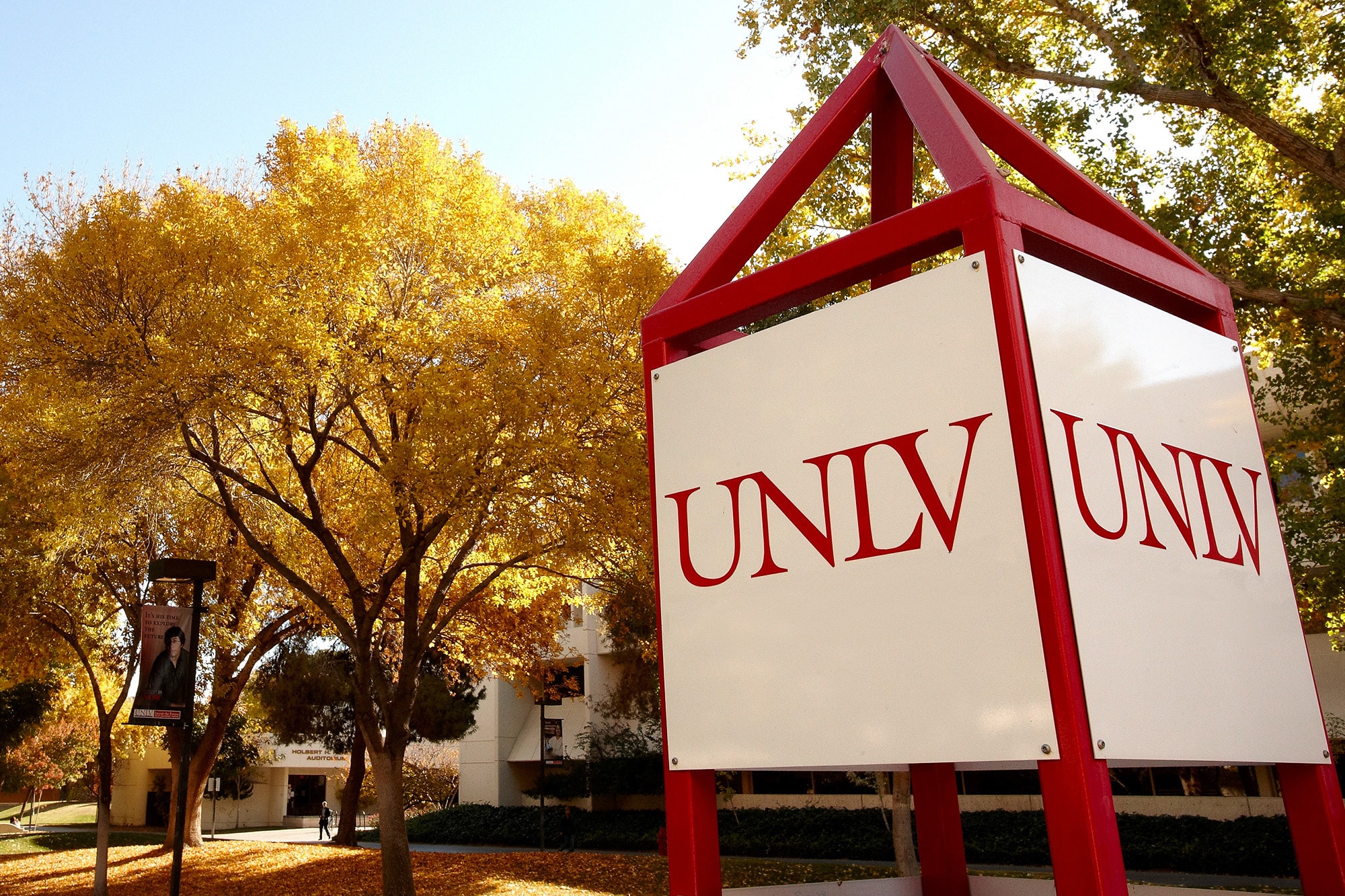UNLV geologist Jean Cline has been awarded a $1.4 million federal grant to conduct a study that will help determine the suitability of Yucca Mountain as a nuclear waste repository.
The funding, which came from the U.S. Department of Energy, is paying for a two-year study in which Cline and other scientists will try to determine whether hot fluids have seeped into the site that is being considered for the repository and, if so, when that infiltration occurred.
"If water did seep in, it is important to know whether it happened within the past two million years," said Cline, an associate professor of geoscience. "If fluid made its way in more than two million years ago, that would not necessarily make Yucca Mountain a risky site for a repository. However, if the invasion occurred more recently, it could indicate the potential for the same thing to happen again, which could make a repository in that location risky."
The idea that hot fluids rose from the depths and infiltrated the site is supported by scientists working for the state, Cline said. Scientists from the U.S. Geological Survey, on the other hand, believe that only cool surface water has penodically infiltrated the site, she explained.
In conducting their study, Cline and other scientists will examine small packages of ancient fluid, called "fluid inclusions," that are trapped in the rock at Yucca Mountain.
Part of Cline's mission is to build a consensus based on findings of the study, so that at the conclusion of the project matters are resolved to the satisfaction of both the state and federal governments.
To that end, scientists from the state, the U.S. Geological Survey, the federal Nuclear Regulatory Commission, and the Nuclear Waste Technical Review Board are meeting every three months to discuss project findings.
For additional information, call Cline at 895-1091.



